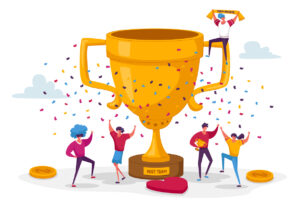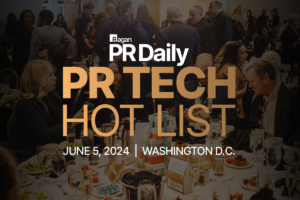Award-winner profile: Intel’s comprehensive new commitment to companywide mental wellness
The tech giant made a pledge to enhance awareness, acceptance and access to mental-health resources, making it an honoree in Ragan’s Workplace Wellness Awards for Mental Wellness Initiatives.

Middle aged CEO congratulating African American employee, shaking hand, tapping on shoulder, congratulating manager with promotion, welcoming new hired member of business team, colleagues applauding
The COVID-19 pandemic has been challenging for most organizations, a low point marked by economic and cultural upheaval. All those things applied at Intel, the $78 billion microprocessor and technology company based in Santa Clara, California.
But Intel pledged to support its people during those difficult months—it would allocate money for employee benefits and build a corporate narrative around mental wellness. From the spring of 2020 to October 2020, the company’s HR and communications teams collaborated on a new mental wellness program, which launched in conjunction with World Mental Health Week. For the program’s architects, it was a defining moment in the company’s 53-year history.
The program’s goals revolved around three A’s: awareness, acceptance and access. To succeed in building awareness and acceptance, it had to be destigmatized. To establish broad access, employees and their families had to be provided with key resources. Intel built a brand-new mental wellness website to compile and house resources from across the company. It consolidated existing wellness programs to create a similar branded look and feel. It featured articles, videos and resources with rotating content based on monthly themes.
Also rolled in were the company’s employee assistance program and industry-leading wellness apps. A new group session EAP series was created with certified counselors, where employees share experiences and thoughts about any number of current events. Benefits for parents were expanded. A companywide communications toolkit was written. Contests helped with engagement.
The campaign successfully achieved its goals around the three “A’s.” By the end of the first week, it had:
- 26,000 mental wellness website views.
- 4,900 contest responses.
- 3,100 webinar sign ups.
COMMENT
Ragan.com Daily Headlines
Tags: covid 19, Intel, mental health






